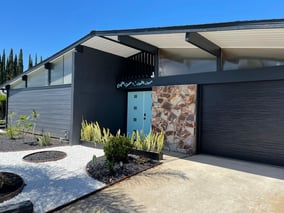3 Simple Ways to House Hack & Buy Real Estate in San Diego
Real estate affordability in San Diego is fleeting. Aside from the recent dip in local home values, prices have generally increased in the past decade. Expensive housing is causing new real estate investors and first-time homebuyers to get creative when figuring out how they are going to pay for the property each month. House hacking real estate has become a popular strategy that enables homebuyers to offset some – or all – of their monthly housing expenses with rental income generated by the property where they live. With a new generation of buyers coming into the market with loads of student loan debt, house hacking is sometimes the only realistic option for them to purchase a home.
Here are 3 simple ways to house hack and buy real estate in San Diego.
1. Single-Family House Hacking
One of the most common ways homebuyers are house hacking real estate in San Diego is through single-family houses with multiple rooms. You can purchase the home, live in one room yourself, and rent out the others. Live-in landlords are using this rental income and nuking part of their monthly mortgage payments to offset the cost. Even when interest rates are high, homebuyers can take out mortgages to house hack and buy real estate because they have help paying their monthly payments from their tenants.
Ideally, people attempting to house hack and buy real estate can cover the entire monthly mortgage payment, utilities, insurance, and other expenses. If you come across a screaming deal, you may even cover all your monthly housing costs while generating a profit each month from the total rental income. This has become tougher to achieve the past few years in San Diego. It’s important to still consider it a ‘win’ even if you can cover only a portion of your mortgage with the rental income.
2. Build an ADU
If you’re wondering what is house hacking in real estate, it doesn’t always mean that you live with your tenants. Many homebuyers in San Diego aim to purchase properties that sit on larger lots. Depending on the city regulations and your property’s zoning, you can build an ADU (accessory dwelling unit) in your backyard and rent it out. This is a creative way to house hack real estate but alleviate yourself from living under the same roof as your tenants.
When house hacking with an ADU, it’s important to know that managing this unit and tenant will be different than single-family house hacking. This position will feel more like an official landlord since you’re technically living in different units that aren’t attached. There’s a chance you won’t run into each other often, so you must make sure that you manage the unit well and give it attention when needed. It’s easy to get lax about being a landlord and forget to check in.
Being a landlord isn’t the easiest gig in the world. As appealing as house hacking real estate can be, bad tenant situations can spiral and escalade in all sorts of different directions. You must know the landlord-tenant laws and follow them. Bad tenants can sometimes lead to squatter situations. To prepare yourself for your journey of being a landlord, this resource outlines how to navigate squatters’ rights in San Diego, California. Hopefully, as a landlord, you never encounter a squatter situation throughout your house hacking journeys. Before using this strategy to buy a house in San Diego, make sure that you are ready for any possible scenario that can play out.
3. House Hack a Garage
Since finding duplexes or triplexes in San Diego isn’t easy, many homebuyers are resorting to house hacking real estate leveraging their garage. Certain house hackers purchase a single-family home, renovate the garage into a studio apartment, live in that themselves, and rent out the rest of their house to tenants.
Of course, when doing construction work to your home in San Diego County, make sure to get the necessary permits before starting the job. If you’re able to complete the work by-the-book, this can be a great way to house hack your next single-family home. Similar to the ADU strategy, you get to live in different spaces than your tenants. This optimizes privacy while also enabling you to offset portions of your monthly mortgage payments from rental income that your home generates.





